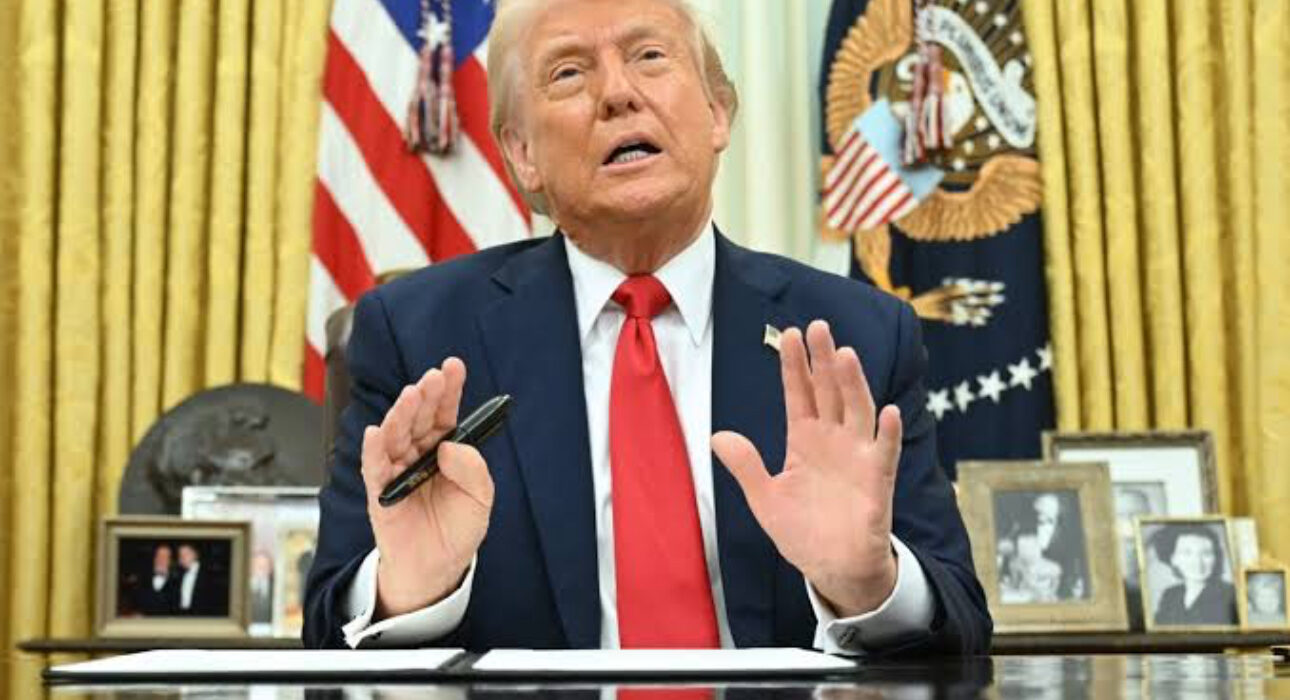Trump Offers $1,000 to Illegal Imigrants Who Voluntarily Leave U.S.

In a controversial move aimed at reducing the cost and complexity of immigration enforcement, the Trump administration has launched a new program offering undocumented migrants $1,000 and a paid plane ticket if they voluntarily leave the United States.
The program, announced by the Department of Homeland Security (DHS), is part of a broader initiative to reduce the financial burden of deportations on U.S. taxpayers and streamline immigration enforcement. Officials say the average cost of a formal deportation exceeds $17,000, making voluntary returns a more cost-effective solution.
Undocumented immigrants who wish to self-deport can now register for the program through the newly rebranded CBP Home app—formerly known as CBP One. Once a participant’s departure is verified through the app, they will receive a $1,000 stipend and assistance with booking a commercial flight to their country of origin.
“This is the best, safest, and most cost-effective way for people to leave the country if they are here illegally,” said DHS Secretary Kristi Noem, describing the effort as a pragmatic response to a long-standing issue.
Administration officials have defended the program by emphasizing its potential to save billions in enforcement and detention costs. In addition to the stipend,
DHS will cover the costs of air travel, bypassing the need for detention or removal proceedings in immigration courts.
“This program is designed to reduce taxpayer burden while encouraging individuals to return to their home countries in dignity and safety,” a DHS statement read.
The move has drawn both praise and criticism. Supporters, particularly within the Trump administration and conservative immigration circles, argue that incentivized self-deportation is a humane and financially responsible solution.
They note that since President Trump returned to office in January 2025, over 152,000 individuals have been deported—lower than the 195,000 removed during the same period under the Biden administration—but at a significantly reduced cost per case.
However, immigration rights advocates have expressed concern that the program may pressure vulnerable individuals into leaving without fully understanding the legal consequences.
“Many migrants who accept this offer could face bans on reentry for up to 10 years, depending on how long they’ve lived in the U.S. unlawfully,” said Linda Chavez, an immigration policy analyst. “We urge migrants to consult with legal experts before making any decisions.”
The initiative is part of the Trump administration’s renewed push for stricter immigration enforcement following Trump’s reelection. In recent months, DHS has also introduced policies including heavier fines and legal penalties for overstaying visas or re-entering the U.S. illegally after removal.
While DHS officials say that self-deportation could leave open the possibility of lawful return in the future, specifics about such pathways remain vague.
The self-deportation stipend program is expected to be closely watched as it rolls out nationwide. DHS says it will monitor participation rates, outcomes, and cost savings to determine whether the program should be expanded or adjusted.
As the administration continues to tighten immigration controls, this new approach could signal a shift in how voluntary compliance is incentivized in the U.S. immigration system.









